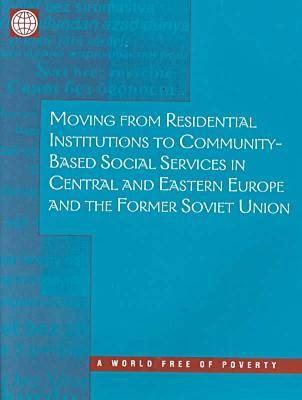One of the most harmful, costly, and intractable legacies of the command economies of Central and Eastern Europe and the former Soviet Union is the reliance on residential institutions for the care of children, the elderly, and the people with disabilities. As a result, there are almost no community-based alternatives to care for large and growing numbers of vulnerable individuals. Other industrial nations have experienced similar periods of economic and social upheaval and also relied on residential institutions to care for vulnerable and marginalized groups. However, most of these nations have switched from residential care to community-based social services. The question for the countries of Central and Eastern Europe and the former Soviet Union is how they can make the same transition. 'Moving from Residential Institutions to Community-Based Social Services in Central and Eastern Europe and the Former Soviet Union' examines the use of residential institutions for vulnerable groups, past and present, and proposes strategies for the future. The study focuses on five countries, Albania, Armenia, Latvia, Lithuania, and Romania, where the World Bank is helping develop community-based social services to reduce the reliance on residential institutions.
- ISBN13 9780821344903
- Publish Date 31 October 2000
- Publish Status Active
- Publish Country US
- Imprint World Bank Publications
- Format Paperback
- Pages 62
- Language English
